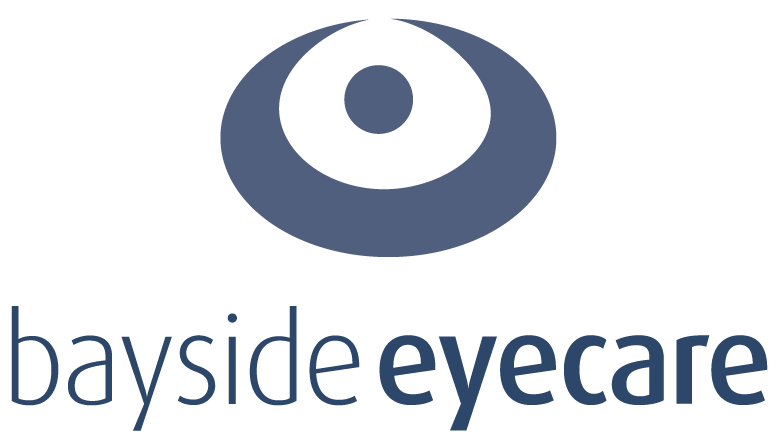Did you know that 80% of what children learn in school is through their vision? From reading the board and completing homework to participating in sports and extracurricular activities, clear and comfortable vision plays a crucial role in their academic and social success.
As the return to school approaches, now is the perfect time to prioritise your child’s eye health. A comprehensive children’s eye test can help identify any vision problems that may hinder their learning and impact daily activities. By addressing these issues early, you can set your child up for success in the classroom and beyond.
Why Eye Exams Are Essential for School-Aged Children
Vision is a cornerstone of learning, yet many children struggle with undiagnosed vision issues that can impact their academic and social development. Conditions like myopia (short-sightedness), focusing difficulties, or eye tracking problems can make it harder for kids to keep up in class or enjoy activities like sports.
Undiagnosed vision problems can lead to:
- Poor academic performance: Blurry vision or difficulty focusing can result in missed details during lessons.
- Behavioural challenges: Children with vision issues may become frustrated, distracted, or appear uninterested in learning.
- Difficulty in sports: Vision is critical for hand-eye coordination, depth perception, and tracking movement during games.
The good news is that many of these issues can be identified and treated early with a comprehensive children’s eye exam. At Bayside Eyecare, our expertise in pediatric eye care ensures that your child receives personalised attention to address their unique needs.
Whether it’s managing myopia or identifying subtle focusing issues, regular eye exams are a proactive step to support your child’s success in school and life.
Bayside Eyecare Services
At Bayside Eyecare, we offer a range of specialised services designed to address common vision issues in children. These services ensure your child’s eyes are ready to meet the demands of academic, social, and extracurricular activities.
Myopia Control
What is Myopia Control and Why Is It Important?
Myopia, or short-sightedness, is a growing concern among children due to increased screen time and reduced outdoor activity. Myopia control for kids focuses on slowing its progression, protecting their long-term vision and ensuring clear sight for academic and extracurricular activities.
How Can Myopia Be Controlled?
Traditional solutions like glasses, and modern solutions such as specialised contact lenses, Ortho-K lenses, and low-dose atropine eye drops, are highly effective in managing myopia progression. These methods reduce the rate of myopia and also support your child’s vision in the classroom and during sports.
Ortho-K Lenses
What Are Ortho-K Lenses?
Orthokeratology, or Ortho-K lenses, are specially designed contact lenses worn overnight to gently reshape the cornea. This temporary adjustment allows children to enjoy clear vision during the day without needing glasses or contact lenses. Ortho-K is especially ideal for active kids who participate in sports or those who find daytime lenses uncomfortable.
Why Are Ortho-K Lenses Ideal for Children?
Ortho-K provides convenience by eliminating the need for daytime corrective wear while also playing a significant role in slowing myopia progression. By addressing both immediate vision needs and long-term eye health, Ortho-K lenses are a practical and effective solution for children with myopia, ensuring they can focus on learning and enjoying activities without limitations.
Behavioural Optometry
Addressing Underlying Visual Challenges
Behavioural optometry goes beyond standard eye exams by focusing on how children use their eyes to process information. This approach assesses visual skills such as eye tracking, focusing, and visual processing—key elements for effective learning. For children struggling with symptoms like difficulty reading, frequent headaches, or losing their place while studying, behavioural optometry provides targeted solutions.
Supporting Academic Success
By identifying and addressing visual inefficiencies, behavioural optometry helps children overcome barriers to learning. For example, improving eye coordination and tracking can significantly enhance reading fluency, concentration, and comprehension, ensuring they’re better equipped to handle classroom challenges.
Vision Therapy
Addressing Learning-Related Visual Skills
 Vision therapy is a personalised program designed to enhance specific visual skills that support academic and extracurricular success. This approach targets areas like eye tracking, focusing, and visual processing, which are vital for effective reading, writing, and overall classroom engagement. For children facing challenges such as trouble concentrating, frequent eye strain, or difficulties following along in class, vision therapy offers structured, tailored interventions to address these issues.
Vision therapy is a personalised program designed to enhance specific visual skills that support academic and extracurricular success. This approach targets areas like eye tracking, focusing, and visual processing, which are vital for effective reading, writing, and overall classroom engagement. For children facing challenges such as trouble concentrating, frequent eye strain, or difficulties following along in class, vision therapy offers structured, tailored interventions to address these issues.
Supporting Cognitive and Visual Development
By strengthening visual skills through guided exercises, vision therapy helps children overcome obstacles that may hinder their academic progress. For instance, improved eye tracking can enhance reading fluency, while better focusing skills aid in sustained attention during lessons. These improvements support learning and help children stay engaged in both academic and extracurricular activities.
When Should Kids Have an Eye Exam?
The Importance of Regular Check-ups
Regular eye exams are vital to ensuring a child’s vision is developing properly and supporting their academic and extracurricular activities. Vision issues can arise at any stage of childhood, often without noticeable symptoms. Scheduling an eye exam before the school year begins ensures any problems are caught early, preventing potential setbacks.
Routine check-ups also help monitor changes in vision as children grow. Early detection and management of conditions like myopia or visual processing issues can make a significant difference in a child’s ability to learn, play, and thrive.
Recommended Frequency of Eye Exams
Optometry experts recommend eye exams for children at the following intervals:
- Infants and Toddlers: A first comprehensive eye exam by six months of age.
- Preschoolers: At least one eye exam between the ages of 3 and 5 to check for early signs of vision problems.
- School-Aged Children: Annual or biennial exams are essential, particularly before the start of each school year, to ensure their vision supports their learning and development.
For children with existing vision concerns or a family history of eye conditions, more frequent visits may be necessary. A personalised schedule can be recommended by our optometrists based on your child’s unique needs.
Make This School Year Their Best Yet
Clear, comfortable vision supports children’s ability to learn, focus, and engage fully in the classroom and on the sports field. Ensuring your child has the tools they need for success starts with prioritising their eye health. From children’s eye tests and myopia control to advanced services like Ortho-K lenses and vision therapy, our expert team is here to support your child’s visual development.
Don’t wait to set your child up for a successful school year. Book their eye exam today by calling (03) 9909 5329 or schedule an appointment online. Clear vision is the first step to a bright future!

 (03) 9596 1238
(03) 9596 1238


